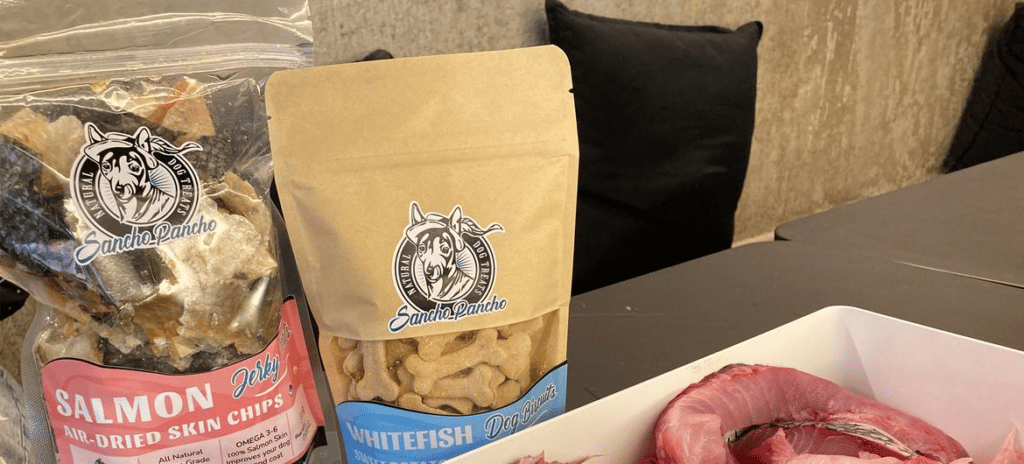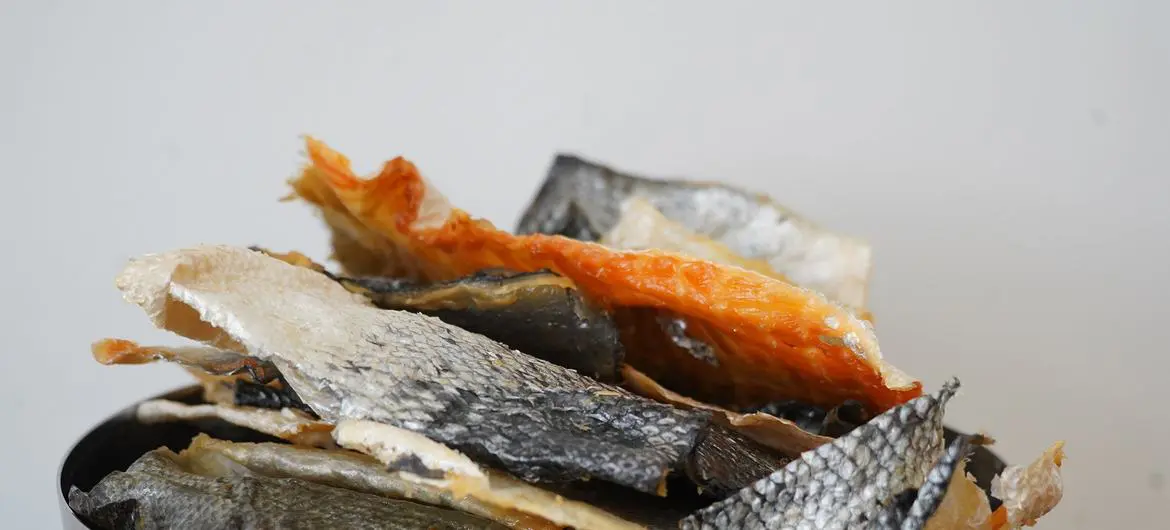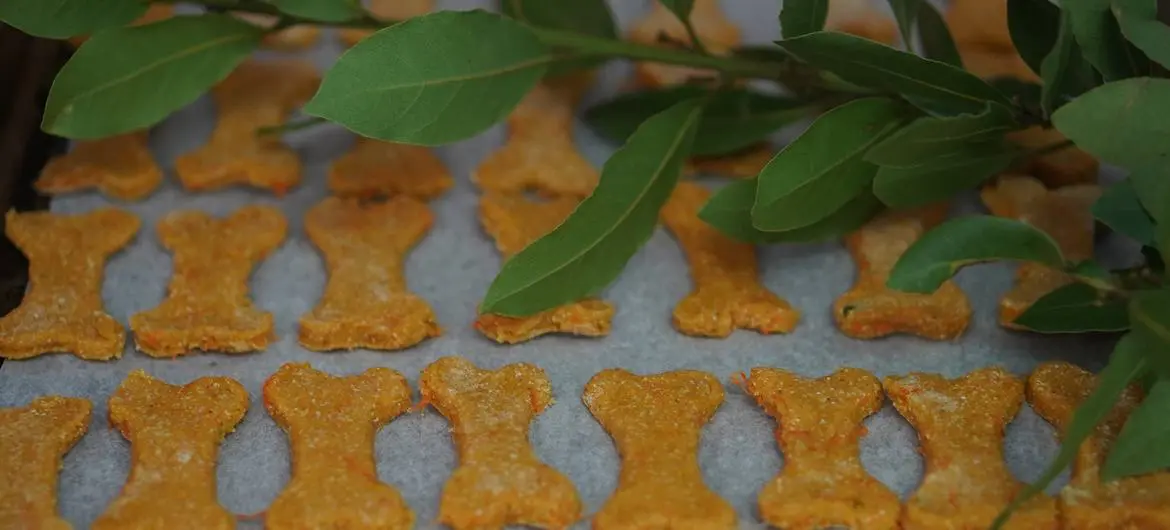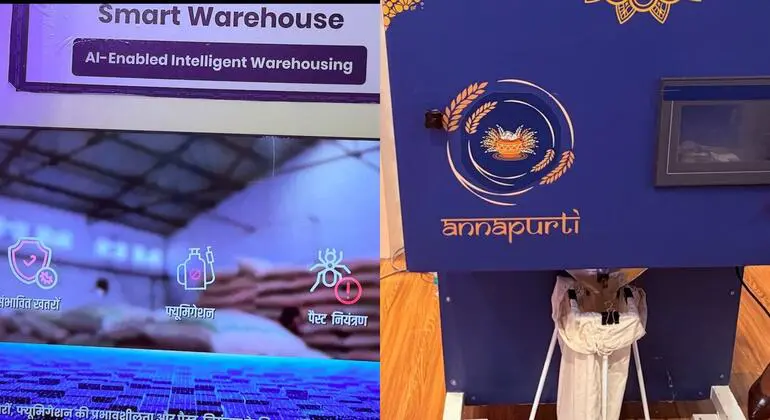Zero waste: There’s no doubt that food loss and waste, has been undermining the sustainability of our food systems. In an effort to counter this, some small businesses around the world are putting the focus on new sustainable waste management practices.
UN News paid a visit to one such project recently, in the Portuguese capital, Lisbon, where the UN Ocean Conference, will take place, at the end of June.
Sancho Pancho was created by Russian Daria Demidenko, who moved to Portugal in 2015. Her ingenious business idea, involves turning leftover parts of fresh fish, into dog treats.
Ms. Demidenko, established her business by partnering with a Japanese restaurant and some of the fish markets in the Portuguese capital. She’s making use of the parts that don’t make it to the plate, and can’t be used when producing high end sushi and sashimi dishes.

Fighting food waste
Every day, pounds and pounds of fish heads, bones, and skins literally end up in the trash, but Ms. Demidenko has revolutionized the approach to such food waste, by partnering with Sekai Sushi Bar, a Japanese restaurant in the central neighborhood of Santos.
Each day, the restaurant receives around 10 kilos of salmon, tuna and white fish.
Sushi chef Sunil Basnet quickly cleans and prepares the fish, including such treats as a three-kilogram croaker caught right off the Portuguese coast.
The owner of Sekai, Edilson Neves, explained to UN News that, on average, 30 per cent of the fish cannot be used by the restaurant.
“The backbone, part of the tail, the edges, the sides, the part that connects with the stomach, some parts of the fish that are tougher, that have more fibers and skin too, we end up not using them. This 30 to 40 per cent that would go to waste, we end up reusing it through Sancho Pancho”.

Healthy snacks
The name of Ms. Demidenko’s business, alludes to the character Sancho Panza, from Miguel de Cervantes’ classic novel, Dom Quixote, and is also a personal tribute to one of her dogs, named Pancho.
She told UN News, about some of the special ingredients and dishes, she’s managed to come up with, making use of the scraps.
“These cookies are made with this type of white fish, which we first cook, and then crush, so the bones have a much smoother texture”, she told us, pointing to one of the dog treats.
“We crush it, mix it with flour and make the cookie. But there are also other types of waste, such as white fish or salmon skins, that you can dehydrate. This type of snack goes into the machine, stays for 20 hours at a temperature of 70˚C and then comes out drier, crispier, and we cut it into pieces and make it like little chips, flakes of salmon skin.”

Scandinavian countries at the forefront
In addition to picking up leftovers at the Sekai restaurant, Daria has partnerships with other restaurants and fish markets in Lisbon.
She collects about 25 kilos of leftover fish a week. Her initiative has won praise from the Senior Fishery expert at the Food and Agriculture Organization of the United Nations (FAO), based in Rome, Márcio Castro de Souza.
“This initiative is very interesting and in fact we have seen, not only on an industrial scale, but also small examples of how to reduce fish waste.
“There are already several salmon producing industries in Scandinavian countries that have already reached the level of using 100 per cent of the whole fish. They don’t miss any. They make fillets, use their eyes to make fertilizer or to generate essential oils, so there is already a whole production focused on zero waste”, he explained.
Other initiatives around the world include using fish skin to make wearable products; using fish scales in the manufacturing of lipstick; and squid ink to color dishes like pasta.
Consumer awareness
Snacks made with salmon skin are rich in omega 3 fish oil, which is helpful to keeping the skin and fur of pets like dogs and cats, healthy.
In addition to reusing leftover fish, Daria’s brand produces cookies from leftover dehydrated rabbit and pork meat.
The creator of Sancho Pancho says she has already managed to raise customer awareness, of the problems caused by food waste.
“Some customers have told us that they are learning from us, and they are now going to fish markets and butchers here in Portugal and also taking some food waste home now themselves. They don’t make snacks for sale, but they manage to make some food for their dogs, cats, or for themselves.”
Halving the world’s food waste by 2030 is one of the United Nations’ Sustainable Development Goals.
Goal 14 also involves sustainably managing marine life. Saving the Oceans and Protecting the Future is the motto of the UN Ocean Conference, which takes place in the Portuguese capital from June 27 through July 1.
Read More






